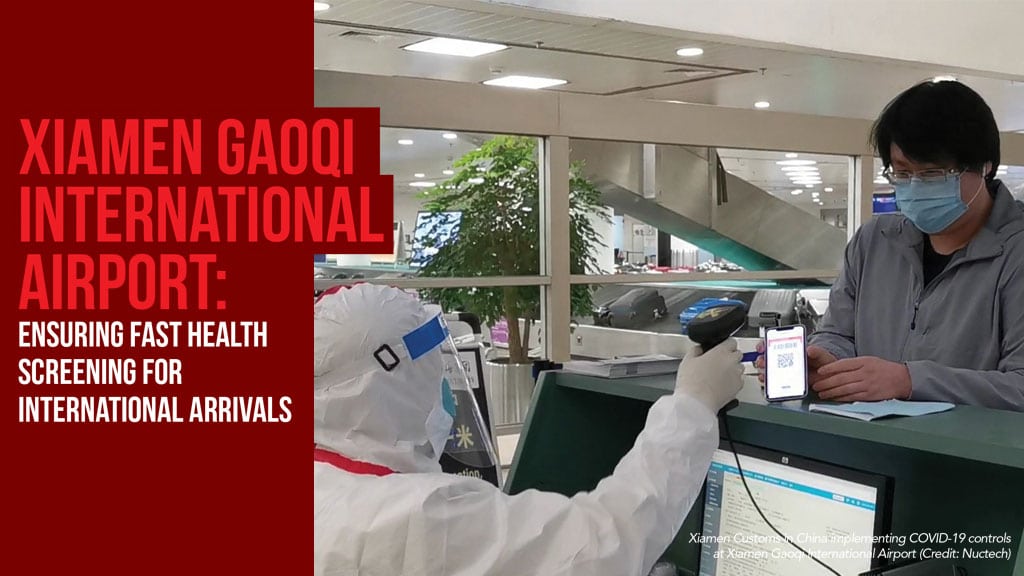Xiamen Gaoqi International Airport (XMN) is one of the 15 busiest airports in China and the main international airport in Fujian Province, routing planes to five continents.
The global COVID-19 pandemic has presented unique health screening challenges yet Xiamen Customs authorities at Gaoqi International Airport played a crucial role, early in the pandemic, by helping prevent the spread of the virus. At first, this involved significant manual information collection that could take several hours. Recognising the need for an expedited, improved process, Xiamen Customs collaborated with Nuctech Company Limited (Nuctech) to design and implement a platform for the health inspection of entry and exit passengers.
Engineering a Solution
Xiamen Customs, together with Nuctech, designed a new, multi-layered system – P-VEMD – that integrates different parts of the customs and health screening processes:
- Pad: mobile tablet to check declaration information
- Verification: health declaration form and epidemiological investigation
- Epidemic Survey: medical examination
- Medical Situation: history
- Data Backtracking: long-term trends
The system works by assigning a unique QR code to each arriving passenger. From their first contact with Xiamen Customs, the QR code of every passenger is scanned at each stage of the process. The information is verified to ensure a seamless transition between steps.

at Xiamen Gaoqi International Airport (Credit: Nuctech)
“Initially, we had to ask in detail about travel history, contact history, activities, and other personal information, in addition to body temperature testing. Content had to be carefully filled out on the paper form,” said Xiamen Customs staff member Junquan Zhuang. “We were able to implement an improved system that assigns an electronic QR code to each passenger, quickly identifying their name, passport number, flight number, seat number electronically. We have reduced the time of this process by more than 50 percent.”
In addition to greatly enhancing the screening and testing process of arriving passengers, P-VEMD helped Xiamen Customs control the pandemic by generating the data needed to respond quickly to positive cases.
“In the past, when we encountered cases of finding passengers with high risk, we had to contact the airline to obtain the list of passengers seated in close proximity,” said Hu Bobo of the
“…Xiamen Customs authorities at Gaoqi International Airport played a crucial role, early in the pandemic, by helping prevent the spread of the virus…”
Xiamen Customs Data Group. “Now, the system can directly contact those individuals determined as suspected cases. The list is transferred to the local health department, which greatly shortens the time spent searching for close contacts and makes the entire backtracking chain more effective.”
Results
Since going operational in April, P-VEMD has successfully screened thousands of people and reduced the average time of flight passenger transfer from six hours to two. For health screenings, the system has reduced total time from an average of over two hours to as little as 90 seconds for asymptomatic passengers.
